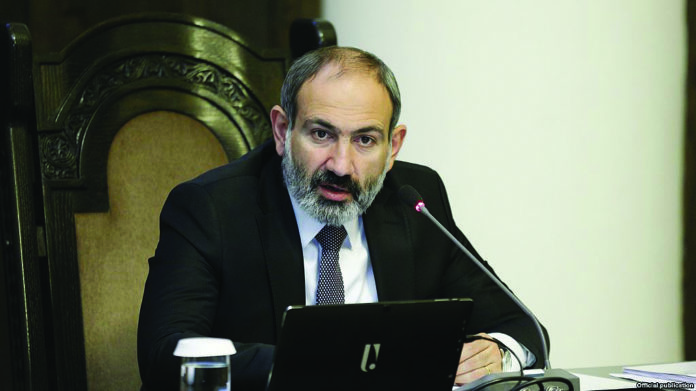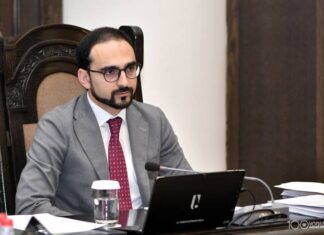YEREVAN (RFE/RL) — The National Assembly began debating on Tuesday, February 12, the Armenian government’s five-year program which Prime Minister Nikol Pashinyan again portrayed as a policy framework for an “economic revolution” in the country.
Pashinyan presented the 70-page program to lawmakers in a two-hour speech that was followed by a question-and-answer session. More than 50 members of the 132-seat parliament registered to ask him questions relating to the document.
“There can be no return to the former criminal-oligarchic ruling regime, and we need to rid our homeland of the last remaining bacilli of criminal-oligarchic and corrupt governance,” stated Pashinyan.
“I am announcing the start of a popular economic revolution in the Republic of Armenia,” he said. “The Armenian people have prevailed in the fight against corruption, impunity and clan-based governance, and the Armenian people will also prevail in the fight against poverty, unemployment and misery.”
The program presented by Pashinyan affirms the government’s commitment to a “competitive and inclusive economy” primarily driven by hi-tech industries. It says that to this end the government will significantly improve tax administration, ease business regulations, guarantee fair competition, attract foreign investment, and stimulate exports and innovation.
This, the document adds, should translate into an annual GDP growth rate of at least 5 percent from 2019 to 2023.









